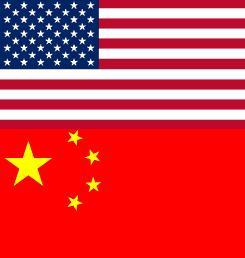China and the United States: Partners?
- Opinión

Most politicians, journalists, and academic analysts describe the relations of China and the United States as one of hostile competition, especially in East Asia. I disagree. I believe that the top of both countries' geopolitical agenda is reaching long-term accord with the other. The major bone of contention is which of the two prospective partners will be the top dog.
When Donald Trump says that he wants to make America great again, he is not in the least outside the general consensus of the United States. Using different words and different policy proposals, this futile ambition is shared by Hillary Clinton, Barack Obama, even Bernie Sanders, and of course the Republicans. It is shared as well by most ordinary citizens. Who is ready to say that the United States should settle for being number two?
When, in 1945, the United States had definitively defeated its great rival Germany, it was set to assume the role of hegemonic power in the world-system. The only obstacle was the military power of the Soviet Union. The way the United States dealt with this obstacle was to offer the Soviet Union the status of junior partner in the world-system. We refer to this tacit accord as the Yalta arrangements. Both sides denied that there was any deal, and both sides fully implemented it.
The United States dreams of reproducing a Yalta-like arrangement with China. China scoffs at this idea. It considers the days of U.S. hegemony as over, believing that the United States no longer has the economic strength to underpin such a status. It also believes that internal disunity renders the United States impotent in the geopolitical arena. On the contrary, China seeks to impose a Yalta-like arrangement in which the United States would be the junior partner. The closest analogy would be the post-1945 relationship of Great Britain with the United States.
China believes that slowly but surely its economic strength will be increasingly unstoppable in the coming decades. It believes that it can hurt the United States economic well-being far more than the reverse. In addition, it believes it will attract other Asians who resent having lived for at least the past two centuries in a world dominated politically and culturally by Europeans.
China's analysis to be sure has two weak points. China may be overestimating the degree to which it can continue to dominate worldwide productive superiority. And it is haunted by the fear that the country might be pulled apart, as has happened often in Chinese history. A deal with the United States might minimize the impact of these dangers for China.
As for the United States, one day reality will sink in and a junior partner role might come to seem better than no deal at all. In this regard, Trump may speed up the process. He will bark, threaten, and insult, but he will not make America hegemonic again. In this sense, a Trump regime will disabuse more Americans than any sober version of the same ambition, such as that represented by Obama's presidency.
In any case, the hidden dance between China and the United States — the unavowed search for partnership — will remain the principal geopolitical activity in the world-system for the coming decades. All eyes should be on it. One way or another, China and the United States will become partners.
15/01/2017
Copyright ©2017 Immanuel Wallerstein -- used by permission of Agence Global
Del mismo autor
- Retirer les troupes ? Les choix impossibles 09/05/2019
- A luta de classes em tempos de crise estrutural 22/02/2019
- How to fight a class struggle 19/02/2019
- The Big Five: Clinging to power 04/02/2019
- Withdrawing troops: The impossible choices 21/01/2019
- The Desperate mr. trump, or Trump says he matters 07/01/2019
- The November 6th U.S. elections: catastrophe or salvation? 05/11/2018
- Human rights, anyone? 19/10/2018
- Les paris risqués de Trump dans l’arène mondiale 20/09/2018
- Trump’s risky bets in the world arena 20/09/2018
